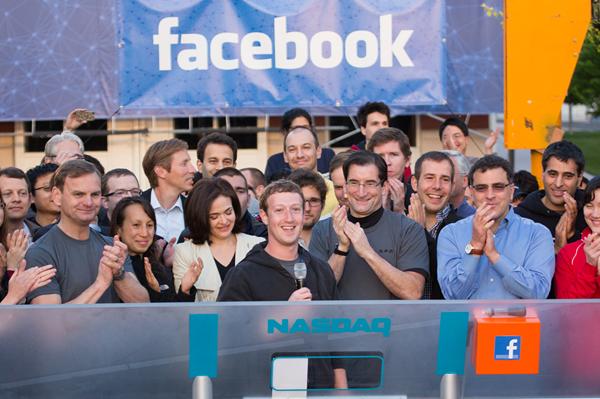Editor’s note: Dan Scholnick is a General Partner at Trinity Ventures where he invests in early stage cloud computing and consumerized IT companies such as New Relic, dotCloud, StackMob, Cloudscaling, and Loggly. You can read more about Dan at the Trinity Ventures website or follow him on Twitter @dschol. He is not an investor in Facebook, though he wishes he were.
Judging by many of the headlines on Friday, you might think that Facebook’s IPO was a miserable failure. The Wall Street Journal declared, “Facebook’s IPO Sputters,” and our very own TechCrunch declared that bankers were “struggling” to keep the share price up. Nevermind that it was the highest ever IPO valuation and one of the largest sums of money ever raised by a U.S. company. According to the pundits, what really matters is that the stock price didn’t increase in value–or “pop”–post IPO and is being propped up by banks. Taking bets on whether an IPO will “pop” provides entertaining fodder to help pundits promote their interests, but it misses the point. This view represents a fundamental misunderstanding of the purpose and economics of an IPO. By the correct measures, the Facebook IPO was a resounding success. Let me explain why.
1. The best IPOs maximize capital raised by the company while minimizing dilution for existing shareholders and employees. An IPO is a capital raise for the company in the same way that a seed round or a Series A is a capital raise for an early stage startup. Simply stated, the success case is that the company raises as much money as it can at the highest price the market will bear. Anything less means that the company has less money to invest in itself and existing employees and shareholders are taking more dilution than necessary. No “pop” means finding the market clearing price for the stock, a strong signal that the company got the best deal it possibly could. It’s hard to imagine that Facebook could have raised more money at a higher price.
2. The best IPOs minimize the fees paid and value transferred to third parties. Mark Zuckerberg and Sheryl Sandberg did a masterful job orchestrating the IPO so that the value went to the company, not the bankers and their clients. The bankers get a fee for marketing the stock, generally a percentage of the total money raised, which in Facebook’s case was a lot. How hard could that be when investors all over the world are clamoring to “like” Facebook? The banks will make an astonishing $176 million on the IPO for doing arguably not a lot. That said, even though the banks will collect a lot of money, Facebook negotiated them down on fees. Historically, bankers have gotten a 7% fee for tech IPOs. Facebook paid just over 1%.
The lack of a “pop” means that Facebook didn’t needlessly give up value to third parties. When a stock “pops”, the people who profit are the clients of the investment banks, usually large institutional investors and wealthy individuals who were lucky enough to get access to IPO shares. Bankers often underprice IPOs on purpose so that their clients are guaranteed to make money. What did those investors do to deserve an instantaneous profit? While those lucky few laugh all the way to the bank, employees and shareholders end up worse off because they’re taking more dilution or because they have less money to grow the business (or both). In the case of a company as highly valued as Facebook, even a small percentage “pop” would represent an enormous amount of money the company could have otherwise raised.
(While there’s lots of talk of sad bankers having to prop up the stock, don’t feel bad for them; bankers are good at making money. They’re just making use of the greenshoe, a complex mechanism that allows them to buy up the issuer’s stock on the public market without taking any price risk, thereby creating more demand. This means they can prop up the stock without having to spend any money. Rest assured, that support will go away the minute it becomes unprofitable for the banks. In the meantime, they get their $176 million deal fee, not to mention all the commissions they get on stock trades. One analyst estimated that the banks made $8 million in trading fees on Friday alone!)
3. The best investments are determined over months and years, not hours and days. So what about the investors who bought in at the IPO who are at break-even or, heaven forbid, are underwater come next week? Well, presumably they’re investing in the IPO for the same reason that VCs invest in early stage companies–belief in the long term potential of the business. When this is the case, everyone wins. The company has a shareholder base that doesn’t pressure it to make short-sighted decisions and those like minded investors don’t care about short-term share price movements. Anyone investing in an IPO (or a private company for that matter) looking for a “pop” is trying to predict short term market behavior. That’s just fine, but it’s a high class form of gambling. Investing is risky business, particularly when it’s based on factors that are impossible to understand. I’m guessing that many of those IPO investors are bullish on Facebook’s future. Any company that controls online distribution for nine hundred million people and counting has got to be pretty valuable. I’d put my money on that.
